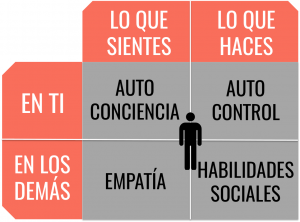Encourage yourself (3 reasons)
There is a big difference between self-love and egoism. Love yourself is to recognize your own needs and limits, and respect and defend them and does not include at any time to benefit of others..

In the following we will see 3 reasons for loving yourself is essential for your own welfare and the welfare of people around us.
- Physical and psychological well-being: If you act with self-love you will realize that you take care of good nutrition, enough movement, social contacts and that you do not apologize for every small mistake or misunderstandings. The inner dialogue will be much more positive and less negative emotions arise. In this way you prevent anxiety disorders or depression and long-term physical problems.
- The self-confidence: If your you accept and love yourself as you are with your strengths and weaknesses, the opinions of others are not very important anymore.. You are free and independent in your decisions and the master of your destiny. In this way you are also more attractive to others.
- Having a healthy relationship:
 A partner can never fulfill the role to make you happy. A relationship that is based on the need for someone confirms that you deserve to be loved does not have a solid foundation. It is created a dependency and fear of losing that person and the fear of losing his own value and self-esteem. If you love yourself you are a free person who chooses to be with someone to share the moments of life and experience of the relationship.
A partner can never fulfill the role to make you happy. A relationship that is based on the need for someone confirms that you deserve to be loved does not have a solid foundation. It is created a dependency and fear of losing that person and the fear of losing his own value and self-esteem. If you love yourself you are a free person who chooses to be with someone to share the moments of life and experience of the relationship.
To love yourself sometimes it can be necessary to identify and change thought patterns and habits that prevent seeing ourselves as valuable and unique people. If you need help or you are looking for professional advice please contact me. I would like to accompany you on your way to yourself, to your happiness and self-esteem.
Greetings and see you soon.
Melanie Gramer












